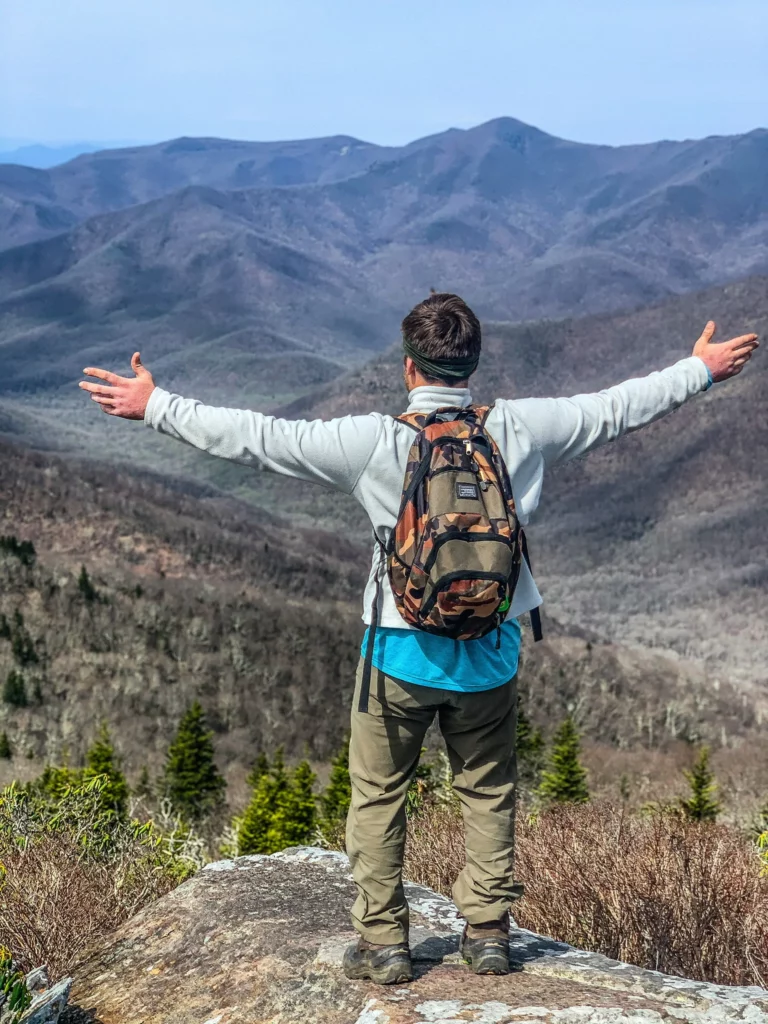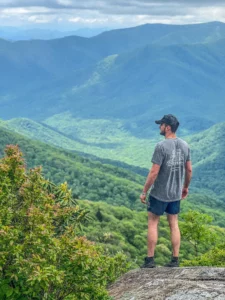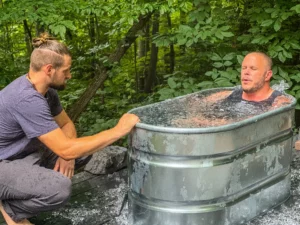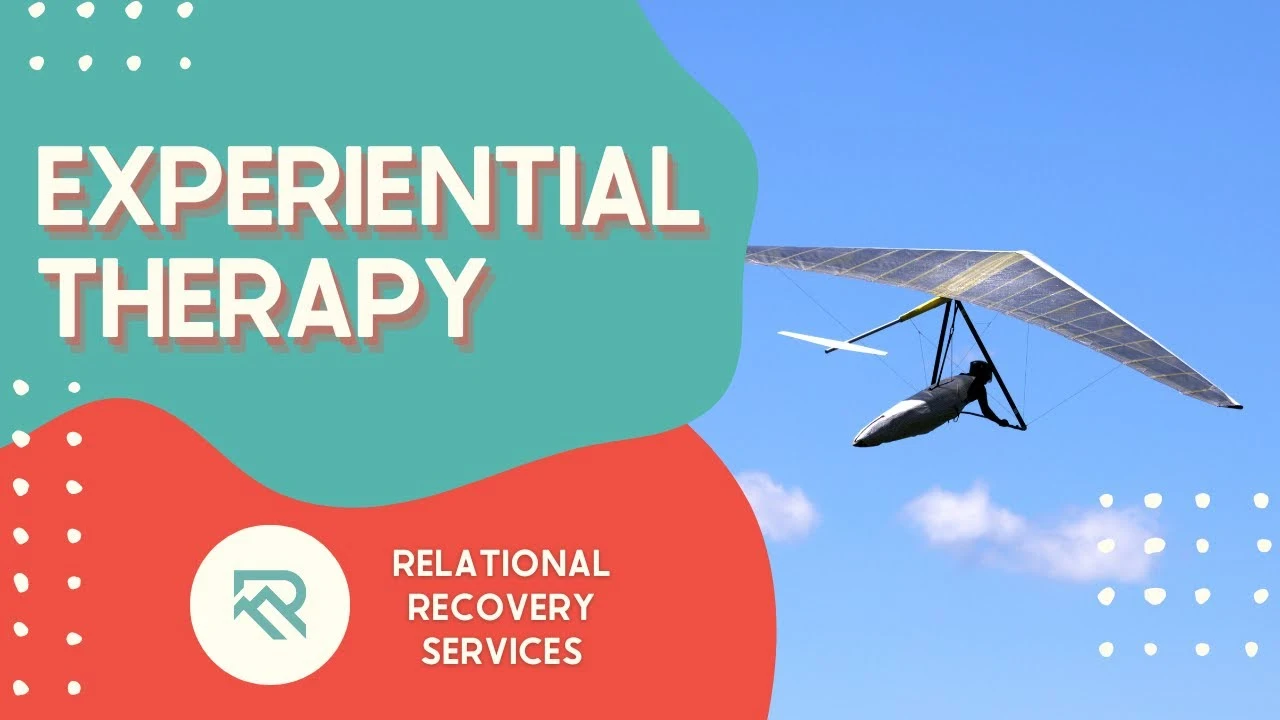Experiential Therapeutic Outings
At Relational Recovery Services, we incorporate experiential therapy into our services on a regular basis. This form of therapy is extremely beneficial and can help with a wide range of issues. From mild mental distress to severe addiction struggles, experiential therapy outings, or wilderness therapy, assists clients in connecting with nature and healing from within.

Experiential Therapeutic Outings
Mental health disorders and addictions are typically treated using talk therapy. These approaches play an important role in healing, but this form of wilderness therapy is a great complementary exercise. Long-term recovery is dependent on overall health. Wilderness therapies provide a variety of advantages that help those in recovery from drug or alcohol addictions maintain overall health. We provide experiential therapeutic outings in Asheville, North Carolina, because Relational Recovery Services recognizes how critical it is to immerse oneself in nature.
What is are Experiential Therapy Outings?
Experiential outings, otherwise known as wilderness therapy or outdoor behavioral healthcare, is a therapeutic modality that employs expeditions into the wilderness or other unfamiliar environments to address behavioral and mental health issues. Despite being a small component of adventure-based therapy and wilderness experience programs in general, wilderness-centric therapies have their own specific characteristics. Wilderness-centric therapy programs are open to individuals of all ages.

How Does It Work?
Wilderness-based therapies offers a non-critical, secure environment for self-discovery. Those who seek therapy with a wilderness counselor often have their maladaptive behaviors analyzed in order to identify negative outcomes in their lives. Primitive fire-starting skills are just some of the activities that are used to challenge disruptive or unproductive beliefs and views as a result of wilderness expeditions and team building activities.
Experiential therapeutic outings aim to help people reach therapeutic milestones by experiencing these kinds of natural events. People learn to interact or cooperate with one another in risky situations in which they have to confront and comprehend their own emotions and opinions. Although wilderness-based therapy does not try to create hazardous or harmful risks, it does challenge the individual to reflect on and gain understanding of his or her own beliefs and attitudes about certain issues.
Substance abuse, for example, is associated with loneliness, self-reliance, and a lack of communication with other people. Working as a team to complete moderate-level wilderness survival skills on a camping trip is one way to challenge these individuals to cooperate with others. Substance use issues can also be addressed in a therapeutic environment where individuals experience group cooperation, trust, and the need to confide in others. It is important to keep in mind that wilderness therapies are not intended to be a primary treatment or a standalone therapy for substance use disorders, which are serious psychological issues.

Types of Wilderness Therapeutic Outings
There are various ways to get involved in self-discovery through wilderness-based therapies. These therapies are often an excellent mode of intervention to help individuals with substance abuse issues to open up and express themselves freely. Here are some of the common wilderness-based therapy programs we at Relational Recovery Services offer:
- Therapeutic hiking – Instead of concentrating on speed, calories, or distance, take a mindful hike and focus on engaging with the scenery and listening to your body as you hike. This can increase mind-body awareness and reduce stress.
- Forest bathing – The tradition of forest bathing originated in Japan and requires time among the trees. Move slowly through a wooded area, taking in the sights and sounds of nature, in order to participate in this activity. Trees and other forest vegetation emit pheromones that induce calm and improve mood, according to research.
- Camping – Camping gives you the opportunity to disconnect from the digital world and reconnect with yourself and nature, whether you camp in your backyard or at a nearby campsite. Sleep patterns can be reset and resilience built through manual labour and rest.
- Rock Climbing – Being in nature while rock climbing can lift your mood and help foster a connection with the world. In addition to that, climbing with others can provide a sense of community that can aid in battling mental health issues. By sharing a physical activity with our friends, we can avoid loneliness and isolation.

Benefits of Wilderness-Based Therapy
The connection between being outside and wellness is something that most people agree upon. Spending time outside helps us to become happier and healthier, among other things. Nature plays a vital role in experiential therapeutic outings in that it promotes mental and spiritual healing, as well as physical and psychological health. The following are eight advantages of these wilderness-based therapies.
- Inspires – Some people recovering from addiction may discover inspiration in the wilderness. For others, it may be a novel experience. During a wilderness rehabilitation program, participants may follow Van Gogh’s example and turn to nature to produce. It doesn’t have to be anything artistic. Being outdoors revitalizes our senses and allows us to tune out the din of the world. When we’re alone, we frequently receive ideas. Nature, therefore, provides the chance to write poetry, create art, and set goals.
- Increases Self-Sufficiency – Individuals are able to rely on themselves more when they are in the wilderness, because they have been relying on drugs or alcohol as a crutch for years. Learning to be self-sufficient is essential for those who have relied on drugs or alcohol as a crutch for years. Drugs and alcohol are not available in the great outdoors, so this is the best place to learn how to be self-sufficient. As they learn new skills and achieve self-sufficiency, individuals become responsible for their own lives. This is a crucial step in full and complete rehabilitation.
- Alters Perspective – Those in wilderness rehab are taken out of their regular surroundings. This change in scenery allows for a fresh perspective. Addicts are able to consider the alterations they need to make in order to live a fulfilling life while they are in a serene, nurturing environment. How nature connects with rehabilitation is described in more detail.
- Slows you Down (in a good way!) – We are accustomed to getting things done immediately, whether we are using self-service checkout lines or instant downloads on our mobile devices. In nature, we can learn how to slow down. However, it is difficult for many individuals to learn how to do this. Modern amenities make our everyday lives faster. Without them, everyday tasks take more time. During an outdoor rehab session, guests are forced to move more slowly. Once people have slowed down, they see a dramatic shift in their attitudes. The most amazing aspect of this newfound ability is that they can take it home with them.
Explore the Wilderness with Relational Recovery Services
Wilderness-based therapies are a wonderful option for individuals who need an engaging, active, and thoughtful environment to heal. This therapeutic approach produces increased responsibility, self-confidence, awareness, critical thinking, and better decision-making in individuals with substance use and mental health disorders. Furthermore, it opens the door for a successful treatment journey in subsequent treatment settings.
To learn more about our experiential therapeutic outings or any of the other services or programs we offer, contact us today! Our specialists are looking forward to hearing from you and are here to help.


